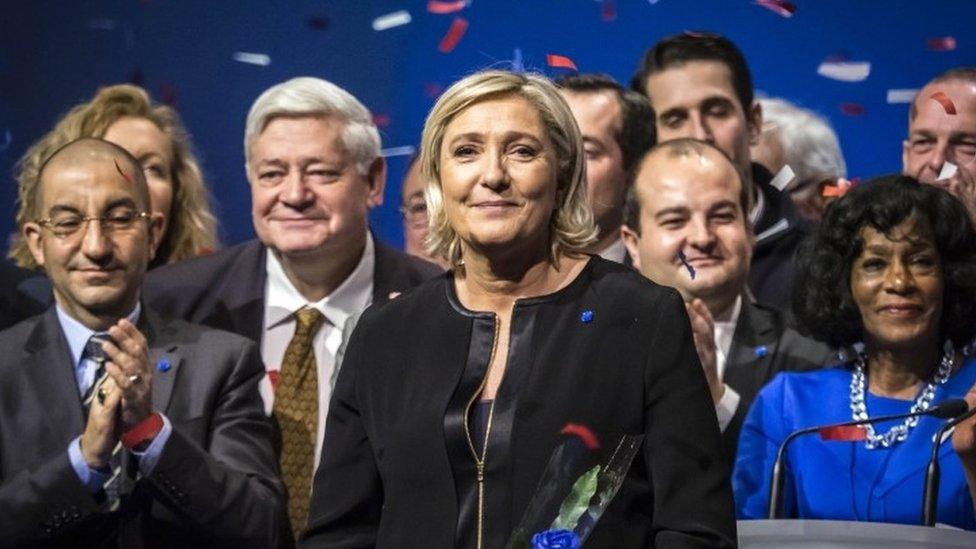Marine Le Pen's French presidential campaign goes lift-off
- Published

Ms Le Pen is seeking to broaden her support base
The mood was somewhere between football match and rock concert.
Tiny brooches pinned to the chests of 3,000 supporters flashed blue, white and red in the dimmed auditorium; impromptu renditions of the French national anthem flowed across the crowd, interspersed with boisterous chants of "on est chez nous" - "we are at home" - the unofficial slogan of the National Front (FN).
Marine Le Pen, or Marine as she is known in the party branding these days, has been trying to soften the FN's image to broaden its appeal.
The party's election manifesto, launched this weekend, has dropped its commitment to bring back the death penalty and toned down its language on immigration and the EU. The euro is never once mentioned by name.
But Ms Le Pen's core message was largely the same, an end to open borders, multiculturalism and free-trade.
"The objective of globalisation is to turn people into simple consumers or producers," she told the crowd.
"Countries are no longer nations but markets. Borders are erased… everybody can come to our country and this has caused a drop in salaries, cuts in social protection to be cut, and a dilution of cultural identity."
Read more:
Cultural identity plays well with many of her supporters; it was her condemnation of fundamentalist Islam that drew some of the biggest applause today.
Some accuse her of building an "anti-Islam coalition" of voters, targeting women, gay couples and Jewish voters, to try and expand her base.
Ms Le Pen's promises, to leave the euro, hold a referendum on membership of the EU and give French nationals priority when it comes to jobs and housing, have won her enough support, polls suggest, to win the first round of the presidential contest.
Her problem, as always, lies in winning the second. In the run-off, her rivals have always managed to attract votes from other parties; Marine Le Pen has not.
Now, with the centre-right candidate Francois Fillon currently battling a financial scandal, she could end up facing the liberal former banker, Emmanuel Macron - a man running his first ever election campaign.
If so, France will be faced, in three months' time, with the prospect of choosing its next president from two political outsiders.